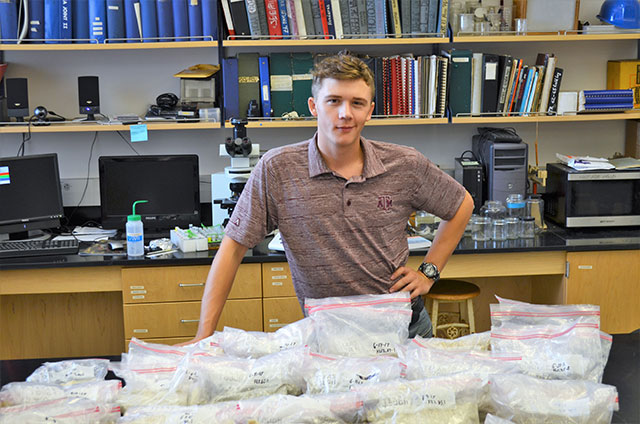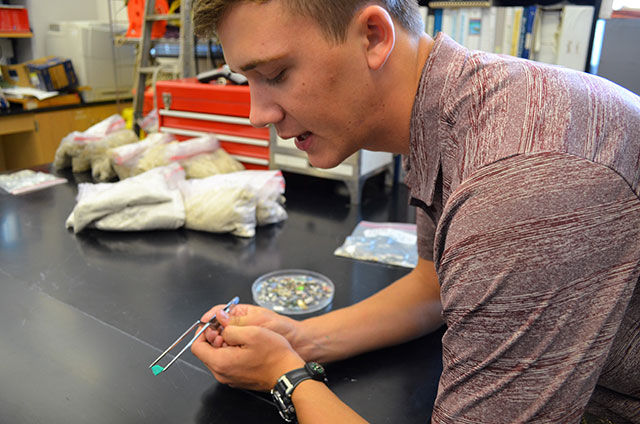TAMUG Student Wants to Take out the Ocean's Trash
TweetBy Patrick Temperilli, Academic Affairs Marketing and Communications
Hailing from Bastrop, Texas, a seven-year-old Russell Cole visited the Sea Turtle Rescue Center at South Padre Island with his family, where he learned how plastics were proving deadly for sea turtles and other marine life. Stirred to action, Cole decided he "was going to save sea turtles and save the world."
His interest in the ocean's wellbeing was galvanized at age thirteen when he attended Sea Camp at Texas A&M University at Galveston, where he romped through marshland searching for crabs. "For weeks after camp," said Cole, "my clothes smelled like the ocean and I knew I had to go back."
"I've always had the interest in marine biology," said Cole, "and as far as I'm concerned TAMUG is the best place in Texas for it."
His passion for his field began to shine when he joined a team of undergraduate students in researching New Zealand fur seals for multiple years, utilizing a photo identification technique rarely used on the species to determine their breeding habits.
The team presented their findings at the Southeast and Mid-Atlantic Marine Mammal Symposium in Savannah, Georgia, and at the spring 2016 TAMUG Research Symposium, where the project won the People's Choice Award.

Cole with samples he has collected from around the world as part of his multi-year research tracing plastics in the oceans.
A recipient of a full scholarship from the Terry Foundation for his academic, leadership and extracurricular activities, Cole was able to focus on his studies and explore other areas of interest.
"I had gone through a few evolutions," he said, "from sea turtles to coral to a few other specialized interests, and now it's come to the other side: stopping the plastics."
In December of 2016, he began to research and trace the quantity and flow of plastics in the world's oceans. This immense task has taken Cole around the world in order to collect a small mountain of samples.
On his travels, Cole was surprised by the extensive nature of the Aggie Network. "In the Galapagos I met an engineer studying at College Station a year under me. In Peru I met an Aggie from the class of '67 and her grandson. In Sydney I met a retired couple who saw my A&M hat and in turn showed me their aggie rings."
Back at TAMUG, Cole has been afforded lab space with Regents Professor Dr. Gilbert Rowe to work on his project, which consists of massive amounts of sifting and sorting through both data and debris. Cole is excited to see what years of hard work may lead to and hopes his research can lead to a greater connectivity between the scientific community and the public.

Cole sorting through collected plastic debris from one of his samples.
"Fishermen don't like to see trash on the beaches or in their fish and I know it's not good for the environment. I think we can solve this if we work together," said Cole.
Looking forward to graduation, Cole is hoping that his work on plastics in our oceans can lead to solutions, as well as a life of research and policy making. "No matter what discoveries we make, if we can't get it out there, it's just going to sit on a shelf. We have the manpower and we have the will. We just have to get it organized."
###